|
Books Should Be Free Loyal Books Free Public Domain Audiobooks & eBook Downloads |
|
|
Books Should Be Free Loyal Books Free Public Domain Audiobooks & eBook Downloads |
|
Mystery Novels |
|---|
|
Book type:
Sort by:
View by:
|
By: Elisabeth Sanxay Holding (1889-1955) | |
|---|---|
 Blotted Out
Blotted Out
The story about a young man who immigrates to the US and is contacted by a mysterious woman. - Summary by Howard Skyman | |
By: Elizabeth Bonhôte (1744-1818) | |
|---|---|
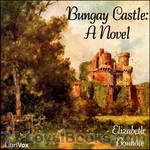 Bungay Castle: A Novel
Bungay Castle: A Novel
MANUAL OF SURGERY, OXFORD MEDICAL PUBLICATIONSBY ALEXIS THOMSON, F.R.C.S.Ed.PREFACE TO SIXTH EDITION Much has happened since this Manual was last revised, and many surgical lessons have been learned in the hard school of war. Some may yet have to be unlearned, and others have but little bearing on the problems presented to the civilian surgeon. Save in its broadest principles, the surgery of warfare is a thing apart from the general surgery of civil life, and the exhaustive literature now available on every aspect of it makes it unnecessary that it should receive detailed consideration in a manual for students... | |
By: Elizabeth Gaskell | |
|---|---|
 The Grey Woman
The Grey Woman
A “Bluebeard” story in which a young woman marries a man whom she discovers has killed his previous wives and is trying to kill her as well. | |
By: Elizabeth Kent (1875-1947) | |
|---|---|
 House Opposite
House Opposite
While trying to escape the heat, a doctor witnesses some strange behavior of his neighbors. Suddenly, everyone and no one become suspects in the killing of an anonymous victim. With all the twists and turns, you will be guessing until the very end. - Summary by Sharon Kilmer | |
By: Ellis Parker Butler (1869-1937) | |
|---|---|
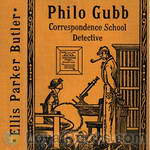 Philo Gubb, Correspondence-School Detective
Philo Gubb, Correspondence-School Detective
Philo Gubb, not being content with his job as wallpaper-hanger, has higher aspirations: to become a detective, just like Sherlock Holmes. To that end, he enrolls in a correspondence course, where he gets lessons through the mail as well as the necessary disguises for a detective. Philo Gubb, not being really clever or intuitive, or even looking good in those disguises, gets involved in one case after the other - and sooner or later happens to stumble on and solve the crime... Each of these stories... | |
By: Émile Gaboriau (1832-1873) | |
|---|---|
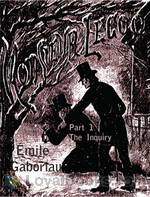 Monsieur Lecoq: The Inquiry
Monsieur Lecoq: The Inquiry
Monsieur Lecoq is a captivating mystery, historical and love story : Around 11 o'clock, on the evening of Shrove Sunday 18.., close to the old Barrière d'Italie, frightful cries, coming from Mother Chupin's drinking-shop, are heard by a party of detectives led by Inspector Gévrol. The squad runs up to it. A triple murder has just been committed. The murderer is caught on the premises. Despite Gévrol's opinion that four scoundrels encountered each other in this vile den, that they began to quarrel, that one of them had a revolver and killed the others, Lecoq, a young police agent, suspects a great mystery... | |
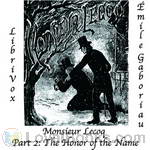 Monsieur Lecoq Part 2: The Honor of the Name
Monsieur Lecoq Part 2: The Honor of the Name
Monsieur Lecoq is a captivating mystery, historical and love story: Around 11 o'clock, on the evening of Shrove Sunday 18.., close to the old Barrière d'Italie, frightful cries, coming from Mother Chupin's drinking-shop, are heard by a party of detectives led by Inspector Gévrol. The squad runs up to it. A triple murder has just been committed. The murderer is caught on the premises. Despite Gévrol's opinion that four scoundrels encountered each other in this vile den, that they began to quarrel, that one of them had a revolver and killed the others, Lecoq, a young police agent, suspects a great mystery... | |
By: Émile Zola (1840-1902) | |
|---|---|
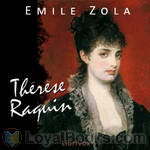 Therese Raquin
Therese Raquin
An unsatisfied wife kills her weak husband in order to carry on a sordid affair with another man. However, her selfish plans are spoiled when her husband continues to haunt her. This is often said to be Zola's first great novel. | |
By: Ernest Bramah (1868-1942) | |
|---|---|
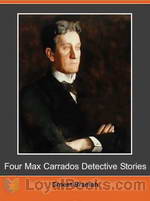 Four Max Carrados Detective Stories
Four Max Carrados Detective Stories
Ernest Bramah is mainly known for his ‘Kai Lung’ books – Dorothy L Sayers often used quotes from them for her chapter headings. In his lifetime however he was equally well known for his detective stories. Since Sherlock Holmes we have had French detectives, Belgian detectives, aristocratic detectives, royal detectives, ecclesiastical detectives, drunken detectives and even a (very) few quite normal happily married detectives. Max Carrados was however probably the first blind detective. | |
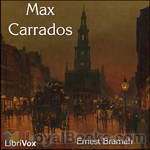 Max Carrados
Max Carrados
Max Carrados is a blind detective who has developed his own remaining senses to a superior level and who has enlisted the superior observations skills of his butler to fill in for any deficiency of his own. His visual deficiency is no obstacle to solving the most difficult cases. As with some better known sleuths, Mr. Carrados' feats amaze, entertain and satisfy. | |
 Wallet of Kai Lung
Wallet of Kai Lung
The Wallet of Kai Lung is a collection of fantasy stories by Ernest Bramah, all but the last of which feature Kai Lung, an itinerant story-teller of ancient China. The collection's importance in the history of fantasy literature was recognized by the anthologization of two of its tales in the celebrated Ballantine Adult Fantasy Series. | |
By: Ernest William Hornung (1866-1921) | |
|---|---|
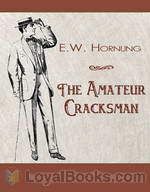 The Amateur Cracksman
The Amateur Cracksman
“I’d tasted blood, and it was all over with me. Why should I work when I could steal? Why settle down to some humdrum uncongenial billet, when excitement, romance, danger and a decent living were all going begging together” – A. J. Raffles, The Ides of March. | |
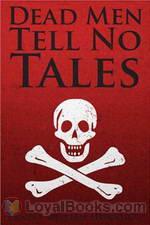 Dead Men Tell No Tales
Dead Men Tell No Tales
Ernest William Hornung (June 7, 1866 – March 22, 1921) was an English author. Hornung was the third son of John Peter Hornung, a Hungarian, and was born in Middlesbrough. He was educated at Uppingham during some of the later years of its great headmaster, Edward Thring. He spent most of his life in England and France, but in 1884 left for Australia and stayed for two years where he working as a tutor at Mossgiel station. Although his Australian experience had been so short, it coloured most of his literary work from A Bride from the Bush published in 1899, to Old Offenders and a few Old Scores, which appeared after his death... | |
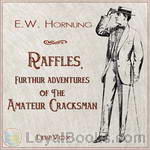 Raffles, Further Adventures of the Amateur Cracksman
Raffles, Further Adventures of the Amateur Cracksman
Raffles, Further Adventures of the Amateur Cracksman (also published as The Black Mask) is the second collection of stories in the Raffles series. After the dark turn of events at the end of The Gift of the Emperor, Bunny’s done his time and, his life not being quite what it was before, now finds himself longing for the companionship of his Raffles. | |
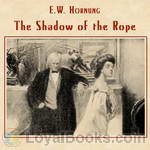 The Shadow of the Rope
The Shadow of the Rope
Rachel Minchin stands in the dock, accused of murdering the dissolute husband she was preparing to leave. The trial is sensational, and public opinion vehemently and almost universally against her. When the jury astonishes and outrages the world with a vedict of Not Guilty, Rachel quickly finds herself in need of protection. It comes in the form of a surprising offer of marriage from a mysterious stranger who has sat through every day of her trial. The marriage to this intriguing stranger, Mr. Steel, is by mutual agreement to be a platonic one, the only condition of which is that neither is ever to question the other about the past... | |
By: Erskine Childers (1870-1922) | |
|---|---|
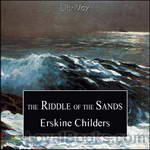 The Riddle of the Sands
The Riddle of the Sands
Containing many realistic details based on Childers’ own sailing trips along the German North Sea coast, the book is the retelling of a yachting expedition in the early 20th century combined with an adventurous spy story. It was one of the early invasion novels which predicted war with Germany and called for British preparedness. The plot involves the uncovering of secret German preparations for an invasion of the United Kingdom. It is often called the first modern spy novel, although others are as well, it was certainly very influential in the genre and for its time... | |
By: Eugène Sue (1804-1857) | |
|---|---|
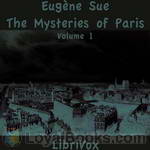 The Mysteries of Paris, Volume 1
The Mysteries of Paris, Volume 1
The Mysteries of Paris (French: Les Mystères de Paris) is a novel by Eugène Sue which was published serially in Journal des débats from June 19, 1842 until October 15, 1843. Les Mystères de Paris singlehandedly increased the circulation of Journal des débats. There has been lots of talk on the origins of the French novel of the 19th century: Stendhal, Balzac, Dumas, Gautier, Sand or Hugo. One often forgets Eugène Sue. Still, The Mysteries of Paris occupies a unique space in the birth of this... | |
By: F. Marion Crawford | |
|---|---|
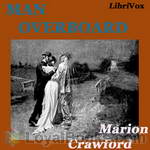 Man Overboard
Man Overboard
Peculiar happenings aboard the schooner Helen B. Jackson when one night during a storm, the small crew found themselves diminished by one. Somebody had gone overboard, and it was surmised that it was one of the twin Benton brothers. But oddly enough, it seemed that the ‘presence’ of the missing twin continued to exist on board during the following weeks. For example, one extra set of silverware was found to be used after each meal, but nobody claimed to be using them. What then did happen that stormy night, and which brother, if indeed it was one of the brothers, was the man who went overboard? | |
By: Fergus Hume (1859-1932) | |
|---|---|
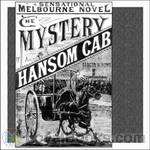 The Mystery of a Hansom Cab
The Mystery of a Hansom Cab
“The following report appeared in the Argus newspaper of Saturday, the 28th July, 18– “Truth is said to be stranger than fiction, and certainly the extraordinary murder which took place in Melbourne on Thursday night, or rather Friday morning, goes a long way towards verifying this saying. A crime has been committed by an unknown assassin, within a short distance of the principal streets of this great city, and is surrounded by an impenetrable mystery. … “On the twenty-seventh day of July, at the hour of twenty minutes to two o’clock in the morning, a hansom cab drove up to the police station in Grey Street, St... | |
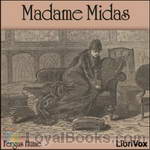 Madame Midas
Madame Midas
Madame Midas is a murder mystery, In the early days of Australia, when the gold fever was at its height. Fergus Hume was born in England, the second son of Dr James Hume. At the age of three his father emigrated with his family to Dunedin, New Zealand. He was admitted to the New Zealand bar in 1885. Shortly after graduation he left for Melbourne, Australia where he obtained a post as a barristers’ clerk. He began writing plays, but found it impossible to persuade the managers of the Melbourne theatres to accept or even read them... | |
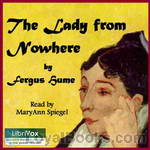 The Lady from Nowhere
The Lady from Nowhere
A mysterious woman is found murdered in a yellow boudoir. Who is she and where does she come from? Detective Absalom Gebb is on the case. (Introduction by MaryAnn) | |
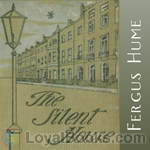 The Silent House
The Silent House
A mystery about a “locked door” murder committed in a house that has a reputation for being haunted. In the first half of the book, the murderer appears to be easy to figure out. The second half of the book, however, is filled with plot twists and mistaken identities and thus complicates the mystery much more. | |
 Bishop's Secret
Bishop's Secret
| |
 Clock Struck One
Clock Struck One
Fergus Hume was a prolific writer of Victorian murder mysteries and The Clock Struck One is another great example of his inventive plots. Julian Edermont living in near seclusion for the last 20 years fearful of an unknown assailant is beaten to death in his study following an argument with his ward's fiance Dr. Allen Scott. The secret revealed to Allen during this argument is such that he breaks off his engagement to Dora refusing to reveal the cause. Since those around her seem unwilling to share what they know it is up to Dora to discover the truth and unmask the murderer of her guardian. - Summary by Celine Major | |
 Lady Jim of Curzon Street
Lady Jim of Curzon Street
Faced with bankruptcy and trapped in an unhappy marriage, Lady Jim Kaims has to solve her problems alone. After every decent way fails her, and with no friend to assist, she resorts to committing crimes. Fergus Hume delves into the mind of an extremely clever criminal with humor, understanding and even compassion. This book is a roller coaster ride which would keep you guessing from start to finish. - Summary by Stav Nisser. | |
 Red Window
Red Window
Two former school friends, now both military men, meet again and discover both are trying to lose themselves to public gaze. Dick West has inherited the family estate, but is out of favor. "The Red Window" was used during periods of civil unrest to warn cavaliers of danger. Now, West awaits a message in the red window from his cousin, to say his grandfather has relented and forgiven him - but a handkerchief around the old man's neck complicates matters. | |
 Girl From Malta
Girl From Malta
One evening as the P. and O.'s vessel "Neptune" steams away from Australia to Britain, Ronald Monteith, a young, wealthy Australian is taken into the confidence of a fellow-passenger Lionel Ventin who relates the story of his rather tragic life. When Ventin is found stabbed to death in his cabin the next morning Monteith vows to find the murderer, thinking it must surely be the vengeful wife of whom he spoke who is responsible. When arriving in London he immediately seeks the help of a barrister and a detective... | |
 Hagar of the Pawn-Shop
Hagar of the Pawn-Shop
Hagar Stanley, a beautiful young Gypsy, is driven by sexual harassment to leave her tribe and seek refuge with her uncle Jacob, a miserly London pawnbroker. He dies after teaching Hagar the business, and she takes over running the popshop till the legitimate heir can be traced. In the odd assortment of objects that pass across her counter, Hagar uncovers one mystery after another. Some items are linked to actual crimes, others to iniquitous acts of human deceit and betrayal. Whether investigating independently or alongside the police, Hagar combines her native shrewdness with woman's intuition to help untangle the webs of wickedness she encounters, that justice might prevail in the end... | |
 Silver Bullet
Silver Bullet
Dr. Jim Herrick and his friend Robin are on a walking tour in the English countryside when they come across a large house where all the lights in the house are on and all of the doors are open. While trying to find someone at home, they discover the body of Colonel Carr, dead from a gunshot wound. After reporting their discovery to the authorities, Dr. Jim decides he would investigate the murder. Suspects abound as the Colonel was an intensely disliked person. A classic “who done it” written by a well respected British mystery writer will hold the attention of a listener throughout the tale. | |
 Sacred Herb
Sacred Herb
A rich playboy comes home from travels abroad and is bully-ragged by his eccentric aunt into finding meaning for his life. This he does by helping a school chum save his fiancée from the gallows and the playboy falls head over heels in love with the fiancée. A web of deception and lies is revealed and also a long list of who loves who filled with how much each is willing to accept. The colorful cast includes a south sea captain, a fortuneteller, and a colorful doctor who is an authority on the inhabitants and customs of Easter Island. Then, of course, there is the sacred herb!—Enjoy!! | |
 Amethyst Cross
Amethyst Cross
Things look bleak for Lesbia Hales. Her father does not let her marry the man she loves. Her mother is dead. She has to keep secrets in order to promote what she wants for herself. One day, her lover, George Walker, is injured in her home and someone stole the expensive amethyst cross. Who could have done that and why? - Summary by Stav Nisser. | |
 Sealed Message
Sealed Message
A mysterious message on a record is found sealed in a cylinder. A heroine straight out of a fairy-tale is kept secluded by a guardian with questionable motives. Add a murder, a gallant and fearless hero to the rescue and you have all the ingredients necessary to make this a very entertaining little mystery by acclaimed British author Fergus Hume! - Summary by Celine Major | |